When you’re working as a stand-in during the coronavirus pandemic, one thing is almost for certain if you are working under the Return to Work Agreement on a TV show or feature film. That relative certainty is: You can wear a mask when you are working, and you don’t have to take it off while you’re working.
However, under the SAG-AFTRA Theatrical and Television Agreements, stand-ins are classified as a type of background actor. While in the New York Zone section of the contract (Schedule X, Part II), stand-in work is considered a “special ability,” it seems that SAG-AFTRA generally recognizes a stand-in not as a “special-ability background actor” but instead as its own standalone job class.
That may be all well and good. But then if you look at SAG-AFTRA’s Background Actors Digest, SAG-AFTRA appears to double back a bit. On page 5, SAG-AFTRA defines a “Stand-In” as a:
Background actor used as a substitute for another actor for purposes of focusing shots, setting lights, etc., but not actually photographed. Stand-ins may also be used as general background.
This last part — that “Stand-ins may also be used as general background” — may seem innocuous enough. However, the implications are somewhat problematic for those hired as stand-ins, especially during the pandemic.
First, many actors do stand-in work on the side. Those actors may be ultimately interested in doing acting work on a show — not background acting but principal acting. If that actor is hired as a stand-in, then is required to be used as a general background actor, a production can forcibly threaten that actor’s future as a principal actor on the project! (The language may be a bit violent, but that’s what it can feel like.)
Ben’s Note!
One day I did a “paid audition” before the casting director for a television series. The next day, I worked as a stand-in on that series. When I was standing in, the television series suddenly wanted to put me in as a background actor as well. I was immediately thrust into the awkward position of having paid my hard-earned money on a casting workshop in hopes of future principal acting work, but now the production wanted to potentially spoil those chances and waste my money by throwing me in the background! It was really upsetting.
If I recall, I didn’t eventually work in the background. But keep in mind that even if you work only as a stand-in on a production, one day you might find your hopes of doing principal work are dashed when the production throws you in the background and features you. (You typically get no additional pay when you are hired as a stand-in but then used as a background actor.)
Second, and more to the point of this post, some people in the entertainment industry gravitate to stand-in work for its comparative safety relative to on-camera acting work. While background actors ultimately have to remove their masks when working on camera, stand-ins do their work wearing their masks. But when a stand-in who has sought safety in mask-wearing is asked to do background work, that security is gone, and the stand-in is now potentially working on the job without a mask while doing background work.
What to do?
Be Self-Protective
If you are hired as a stand-in, memorize a couple things:
- Know where you stand about mask-wearing on set during the pandemic. Are you doing stand-in work because you get to wear a mask on set? If you were asked to remove your mask on set, how would you feel? Would you be upset? Would you be okay with that? Knowing those values you have, will help you to …
- Know where you stand about being pulled to do background work. If you are uncomfortable about working without a mask on set, make sure you remember that immediately when a production asks you if you would also work as a background actor. If you are comfortable about working without a mask, then your concern might not be mask-related but instead whether you want to potentially spoil your future chances at doing principal work on the production.
When you have these values securely in mind, you’ll be better able to navigate the sudden request for you do also do background work when you were only hired as a stand-in.
Negotiate
While SAG-AFTRA may say you can be used as a general background actor when you’re hired as a stand-in, it is the opinion of Stand-In Central that when you are hired as a stand-in, you do not give up your agency over your career or career choices, and if you have health and safety concerns about working without a mask, you do not have to agree to doing background work if you were not informed by production ahead of time that you were also hired to work as a background actor.
An extreme example may be illustrative of the point. Say you were standing in on a production with mature subject matter and partial nudity. You might be comfortable enough to work a stand-in amid the mature subject matter, because your work is off-camera and likely fully clothed. But you might be uncomfortable working on-camera in mature subject matter, and you might be even more uncomfortable if production asked you to do partially nude and sexually suggestive background acting.
You certainly did not sign up to work as a stand-in, only to be forced into working on camera in scenes that would make you highly uncomfortable. It certainly seems unreasonable SAG-AFTRA would support your having to such work if asked, just because “Stand-ins may also be used as general background.”
But even more to the point, if you were hired as a stand-in, it seems that you retain a right to refuse additional work that was not in the scope of your booking. It is the opinion of Stand-In Central that background acting, despite how SAG-AFTRA defines a stand-in in their Digest, is not in the scope of work for someone hired as a stand-in.
Of course, you can agree to do background acting in addition to your booked stand-in work, and you can do it for no additional wage. But, in Stand-In Central’s opinion, you can also negotiate over the matter, meaning you can accept and even reject the request without discipline, unless you actively agreed to do it when you were booked.
What to Negotiate
If you are hired as a stand-in and asked to do background acting, realize that it’s a pandemic, and working without a mask among others without a mask may put you in harm’s way. If you are a regular stand-in on a production, then that additional threat may also spell loss of work if you end up with a positive coronavirus test. So, consider some of these things to negotiate:
- Agree to background acting if you are isolated from other background actors. In other words, do it if you can play a character who does not interact with other background actors in the shot. This will presumably help limit your exposure.
- Agree to background acting if the background acting is outside. To date, it is generally presumed that working outside without a mask is much safer than working indoors without a mask. Even if it’s outside, try to see if you can be by yourself in the shot to limit your exposure.
- Agree to background acting if you can not-show your face. This may be tricky for an assistant director to guarantee as shots or angles can be added such that your face might be concealed in one shot, but suddenly clear as day in another. But if you agree to this upfront, you might help prevent being placed smack dab in a featured background acting role!
- Agree to background acting if it’s just wipes of a camera close to the lens. When you’re wiping a camera close to a lens, you’re probably not seen — you’re just a shape or a blur. You are unlikely to spoil your future job opportunities with that kind of background acting assignment.
- Just let production know you are interested in auditioning for and/or working as a principal actor on the job, and you don’t want to prevent a future opportunity. You may be surprised a production may be compassionate to your career interests, especially if you are a regular stand-in on a production.
- Consider the background acting job and whether asking for additional compensation is reasonable. In general, stand-ins asked to do background work do not get additional compensation. That’s not to say you can’t ask for it. When you are asked to stand-in and do background acting, you may find you have a hard time getting breaks, watching your actors for changes in their blocking, etc. The background acting theoretically may make doing your stand-in job harder, so it’s not unreasonable to ask for additional compensation given such a perspective.
Conclusion
If this weren’t a pandemic, Stand-In Central might be more encouraging of just accepting a production request to add on background acting to your day.
But this is a different, dangerous time we are in, and while this post is published, the Omicron variant of the novel coronavirus appears to be ripping through the population, even despite some people’s high levels of vaccination.
Working with a mask is part of a stand-in health and safety strategy, and it may keep a stand-in working for weeks. If that stand-in is asked to do background acting, production is not making a minor request. That stand-in may suddenly be exposed to health and safety risks that could also jeopardize future stand-in employment on the production.
Doing additional background work when you are a stand-in is definitely something to weigh and consider. Feel empowered when you say no, or say yes, by connecting with your values before you’re asked about it.
Have you been asked to do background acting when you were hired as a stand-in during the pandemic? How did you field the request? What advice do you have for other stand-ins put in this situation in the era of COVID-19? Post your experience and thoughts in the comments below!

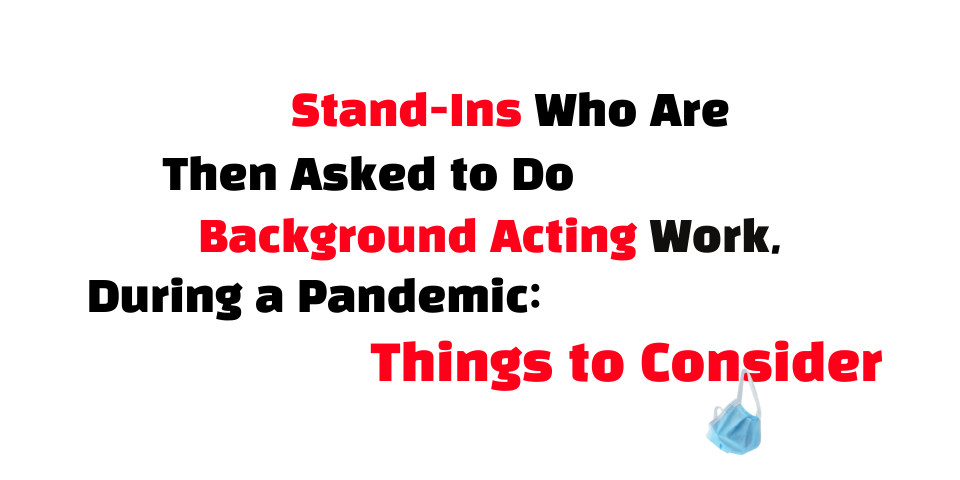
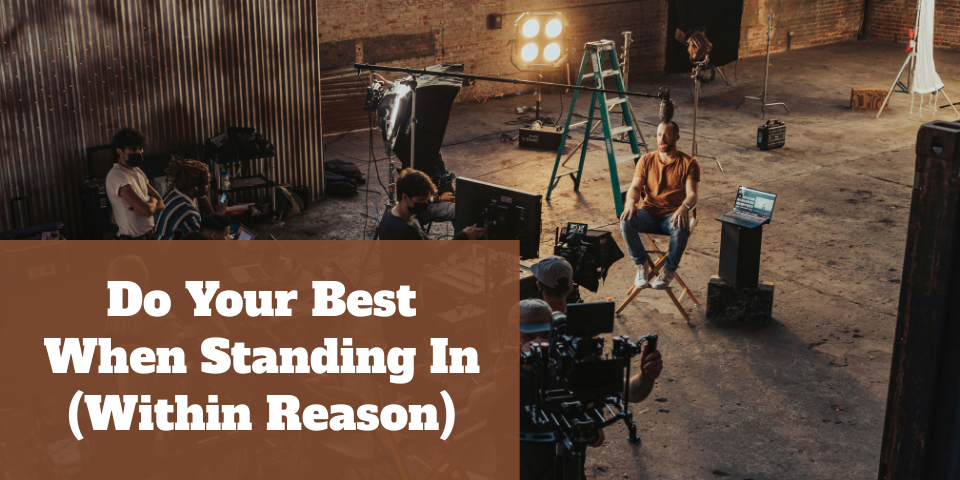
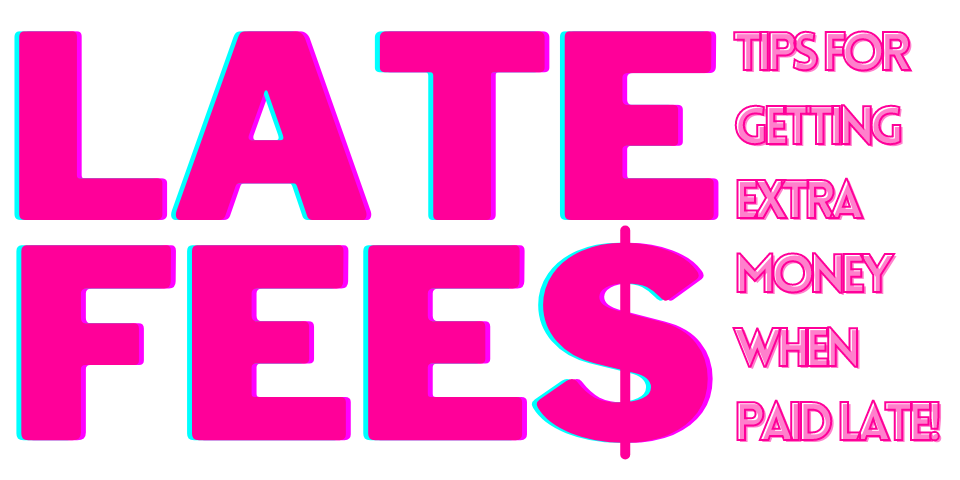
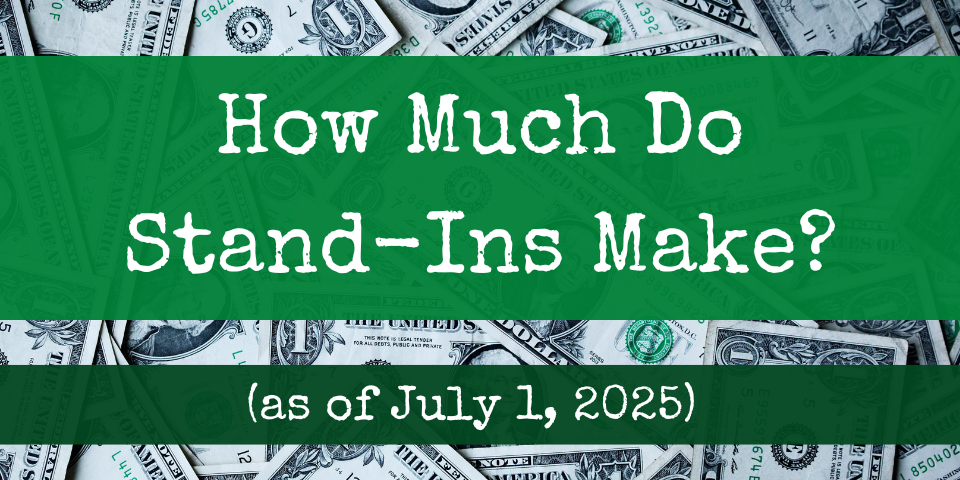
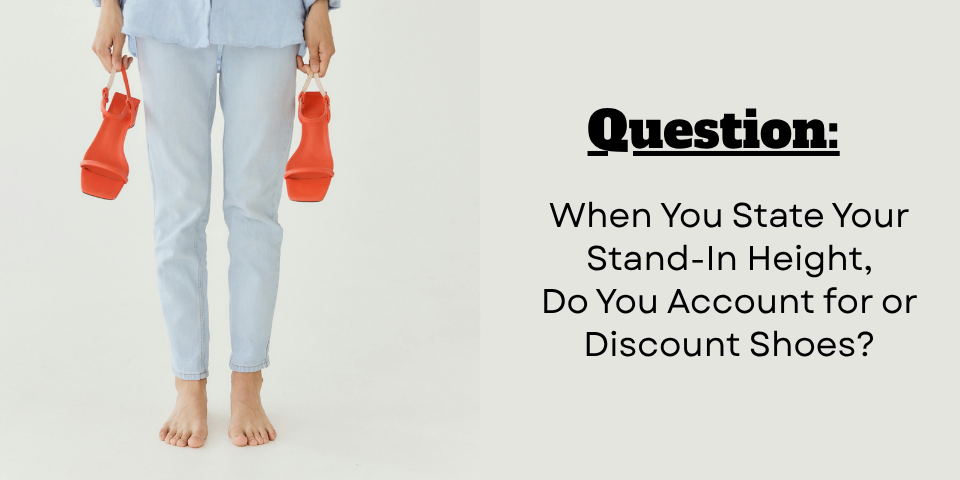
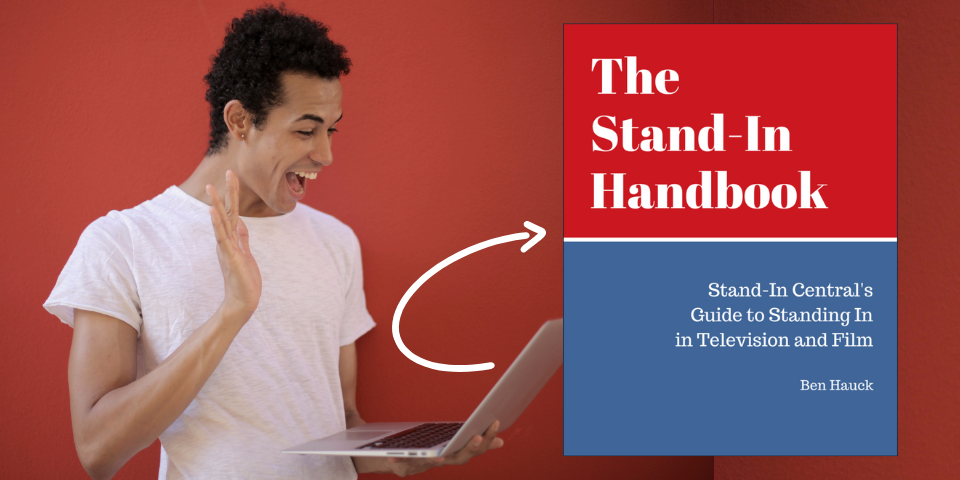
Leave A Comment